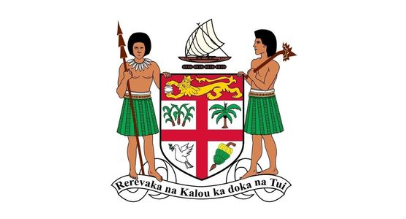
Pm Rabuka’s Remarks At The Launch Of The United Nations Social Cohesion Program For Fiji-(26-04-2024)
27/06/2024
Speaker of Parliament and Turaga Tui Cakau Gives Consent to Repatriate Remains of the late Corporal Sukanaivalu VC
02/07/2024Published On: 27/06/2024
Ni sa Bula Vina’a and a very good morning to you all.
Honourable Speaker – I rise to deliver a ministerial statement on the proceedings of the 28th Conference of Parties otherwise known as COP28 held in Dubai, United Arab Emirates.
This Statement will elaborate on the following:
i) the outcomes of the Conference of Parties
(COP28) meeting;
(ii) reflect on global progress in responding to
climate change; and
(iii) outline directions and priorities on climate
change for Fiji.
Overall State of play – Towards a Region of Peace
Honorable Speaker, as Prime Minister and Minister for Environment and Climate Change, I remain very concerned at the scale of the effects of climate challenge we face and the existential threat it poses to the well-being of our nation and region.
As we have seen and experienced, the seasonal patterns our ancestors lived by, are shifting rapidly. From more frequent and extreme rainfall events to unseasonable droughts, intensified cyclones, and higher average temperatures – the changes are disorienting for the island populations of the Blue Pacific.
At the same time, we experience different localised permutations of the climate threat depending on where we are, how we live, and what we depend upon. What is constant in the complexity of this crisis is the collective effort of Pacific leaders to build unity and mobilise action to protect our collective future.
While we can rely on this unity in the Pacific, unfortunately, in many cases, this is an exception to the rule.
Looking further afield, and reading beyond the political rhetoric, it is clear that global cooperation is faltering at a time when we need it most.
Unfortunately Mr. Speaker, geopolitical rivalry remains a core driver of many interests.
Rather than find motivation and common purpose to:
(i) combat the shared suffering of the climate
crisis,
(ii) combat the staggering loss of biodiversity we
are experiencing, or
(iii) commit a realistic and equitable share of international capacity and resources to reduce damage to livelihoods, many large economies remain focused on short term gain and inter and intra-regional competition.
This is why I continue to bring attention to the broad concepts of peace and security which must underpin our regional and global vision. Rivalry and disunity is undermining efforts to address climate change at the scale required.
So, when it comes to concepts of peace and security and the need for our region to share these aspirations – I speak to issues of
geopolitics and climate change as one in the same.
Mitigation and the Global Stocktake
Honorable Speaker, as you heard in Dubai, the world is not on track to keep global average temperature rise below 1.5 degrees Celsius.
Keeping global temperature rise below 1.5 degrees is not a political objective, or by perspectives or preferences, instead, it is a guardrail identified by thousands of leading scientists and is threshold, beyond which, life on earth changes dramatically.
In the Pacific – the difference between 1.5 and 2 or 3 degrees is the difference between habitability of our island homes, and forced migration.
It is the difference between catching your own fish and growing your family’s food or being wholly dependent on imported protein. It is the difference between economic sovereignty and fully fledged dependence on external aid and disaster relief.
Mr. Speaker Sir, the difference between 1.5 degrees and 2 or 3 degrees Celsius is a distinction that involves great consequences for all people in all regions, not just for our people in the Pacific. However here in the Pacific the difference is not subtle – the difference is a knife edge.
The Pacific must continue to present the voice of pragmatism and influence those that appear increasingly committed to disunity and ultimately, self-harm.
Last year’s 28th annual Conference of the Parties to the United Nations Framework Convention on Climate Change (UNFCCC) (COP28) convened from 28 November to 13 December 2023 in Dubai.
COP28 was mandated to reflect on progress made since the Paris Agreement agreed in 2015 (COP21) 7 years prior.
The final decision text agreed upon in Dubai –which is referred to as the UAE Consensus, documents the lack of progress made to date.
It is also the first decision text agreed upon in the 28 years of these gatherings that makes explicit reference to fossil fuels and introduces a global commitment to transition away from fossil fuels. While there are a few large economies that continue to push against this transition, many are working hard to embrace it and there is increasing potential in the uptake of renewable energy
globally.
To ramp up our own efforts to decarbonize our economy we need to be clear on why we are pursuing decarbonization in Fiji.
With our minimal contribution to global emissions, our reasoning is more about the economic benefits of this transition.
Mr. Speaker, Fiji as you know, is heavily dependent on imported fossil fuels and as such we are exposed to the increasing oil price volatility, we see annually. The price of oil impacts all aspects of our daily lives.
It is felt across our value chains, at the shops and markets in our daily purchases, transport systems, and our whole economy.
In fact, it drives our inflation and the high cost of living!
While we must be practical about how and where renewable alternatives will be viable, we know that there is huge benefit that is largely untapped.
Mr. Speaker, we must be pragmatic when it comes to decarbonization, we must focus on transitioning energy systems in ways that build resilience and increase economic independence. Whether it is landowners (either iTaukei or freehold) releasing their land to host solar arrays to power communities, or electric buses that reduce emissions and increase public transport uptake, or
strategic investments into locally produced biofuels, we must be open to these opportunities.
At COP28 we signed the Global Renewables and Energy Efficiency Pledge, to triple the world’s installed renewable energy by 2030 and involves a further commitment to collectively double global average energy efficiency improvements every year
until 2030. We hope Fiji can benefit from this global pledge.
Loss and Damage
Honourable Speaker, for our people, struggling with flood waters and rising fuel costs, we must continue to bring attention to the loss and damage we are already experiencing.
At COP28, a major headline was the agreement on the operationalization of the new Loss and Damage Fund agreed at COP27.
Fiji and Pacific nations engaged in a 12-month negotiation process through the Transitional
Committee to design the governing instrument of this new fund in 2023.
Our collaborative work with our Pacific SIDS family led to Fiji’s inclusion as member of the new Loss and Damage Board.
What Fiji brings to this process is our experience with the limits of adaptation which we are actively facing daily in Fiji.
At the national level, following endorsement of the Standard Operating Procedures For Planned Relocation last year, we are moving forward with the relocation of the Nabavatu community.
Adaptation
Honorable Speaker, we signed four additional pledges and declarations at COP28. These are:
The COP28 Declaration on Climate and
Health.
The Climate Relief, Recovery and Peace
Declaration.
The Gender Response, Just Transition &
Climate Action Declaration; and the
UAE Declaration on Sustainable Agriculture,
Resilient Food Systems, and Climate Action.
We will follow up on opportunities for these pledges to translate into tangible benefits for vulnerable small island developing states. Following COP28 it is clear that irrespective of support and opportunities that exist, Government must take the lead in ramping up domestic adaptation efforts.
This means developing more robust and larger scale climate financing proposals and engaging effectively to support our access to finance.
Overarching Priorities into 2024
With this in mind, Government will accelerate adaptation programming to build resilience and create a prosperous future for our communities. In addition, for the rest of the 2024, we will focus on the following priorities on the domestic front:
(i) Delivering against the Strategic Implementation
Roadmap for Fiji’s Climate Change Act to
increase collaboration across sectors and better
coordinate efforts.
(ii) Increasing access to financing through the new
Loss and Damage Fund; the new Pacific
Resilience Facility; and other international
climate finance mechanisms.
(iii) Engaging effectively in global negotiations on the
new quantified collective goal for climate
finance in preparation for COP29.
Bipartisanship and Collaboration
In concluding Honourable Speaker, please allow me to thank the members of the Fiji delegation to COP28.
In particular, I must thank you Mr. Speaker, and respective Cabinet Ministers for engaging in the COP28 process.
I also wish to specially thank Honorable Inia Seruiratu, Leader of the Opposition for joining the Fiji delegation and in so doing embodying the bipartisan approach to climate change that is so important for our nation.
Within this Government and this nation, addressing climate change and preventing further harm to the people of Fiji is a bi-partisan priority, which is above politics.
In saying that, we must now shift gear to accelerate implementation of our objectives. We need to be increasingly strategic, collaborative, and open-minded to manage the long-term nature of this existential threat.
Fiji may be recognised as a world leader for our efforts to lead on policy and international advocacy on climate change over the years, but we will be judged on our ability to deliver results.
It is the results, rather than the diplomatic fanfare upon which the Peoples Coalition Government is focused.
Honorable Speaker, the outcomes of COP28 are a reminder for Fiji to deliver at the national level to underline our commitment to both international leadership and domestic action.
Honorable Speaker, no nation is exempt from the impacts of climate change. No nation can address it alone. But if we work together, we can achieve much more.
Keeping momentum on this priority is the only way to create the enabling environment for the peace, security, and prosperity we all expect from the future.
I thank you Sir.
Vina’a Va’alevu



